Abstract
Bacteria, found in manganese nodules from the Atlantic Ocean, enhance the adsorption of Mn++ from sea water by crushed manganese nodules in the presence of peptone. When bacterial outgrowth from crushed manganese nodules was experimentally delayed, peptone did not enhance Mn++ adsorption by nodular substance, but hindered it in some cases. A mechanism to explain the role of bacteria in enhancing Mn++ adsorption by manganese nodules is presented. Oyster shells were shown to adsorb Mn++ in the absence of bacteria. Peptone did not enhance the rate of Mn++ adsorption. Adsorbed Mn++ was not visibly oxidized during experimental observation. These results suggest one way whereby nodule formation may be initiated in the oceans. Some bacteria in the nodules were found to release manganese from them in the presence of glucose and peptone. Bacteria may, therefore, play a role not only in nodule buildup but also in nodule breakdown.
Full text
PDF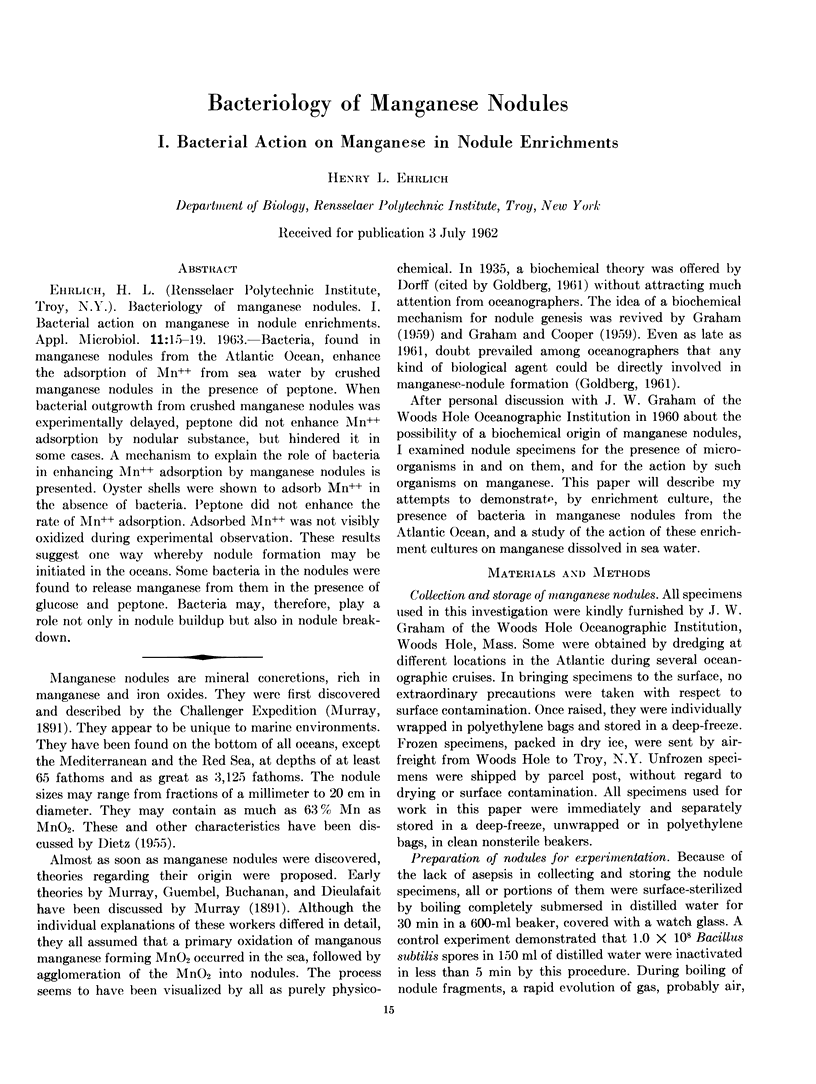
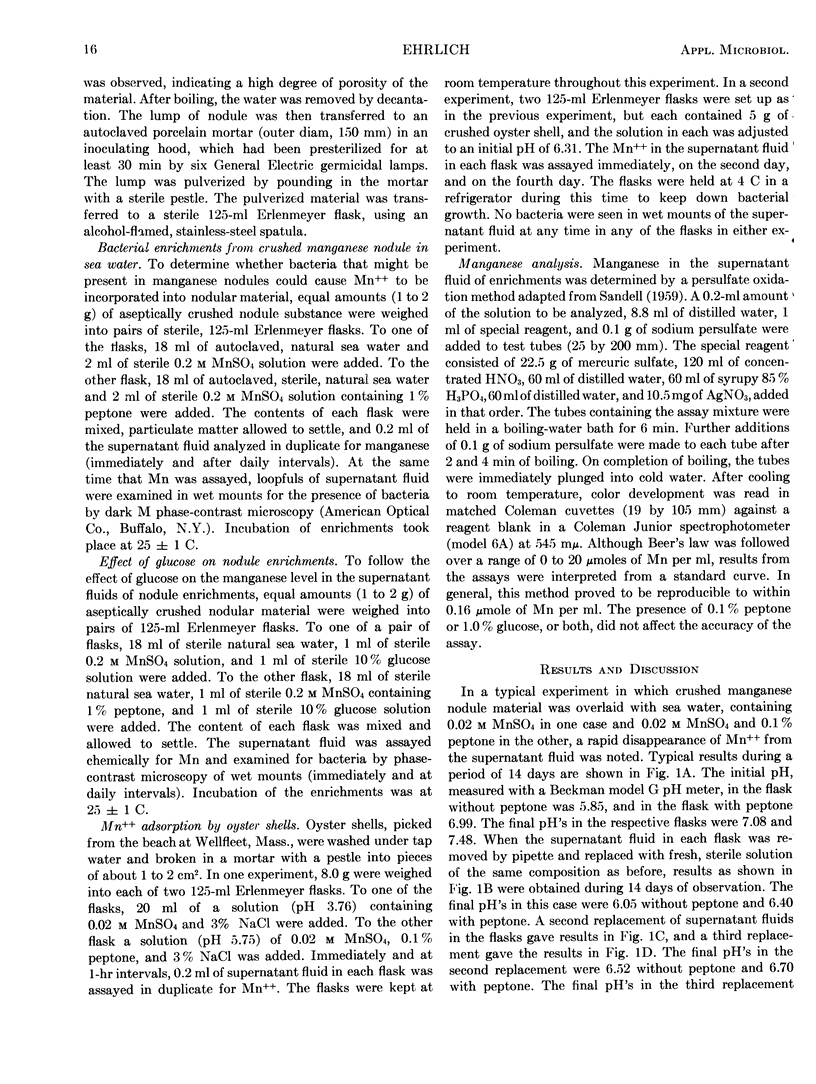
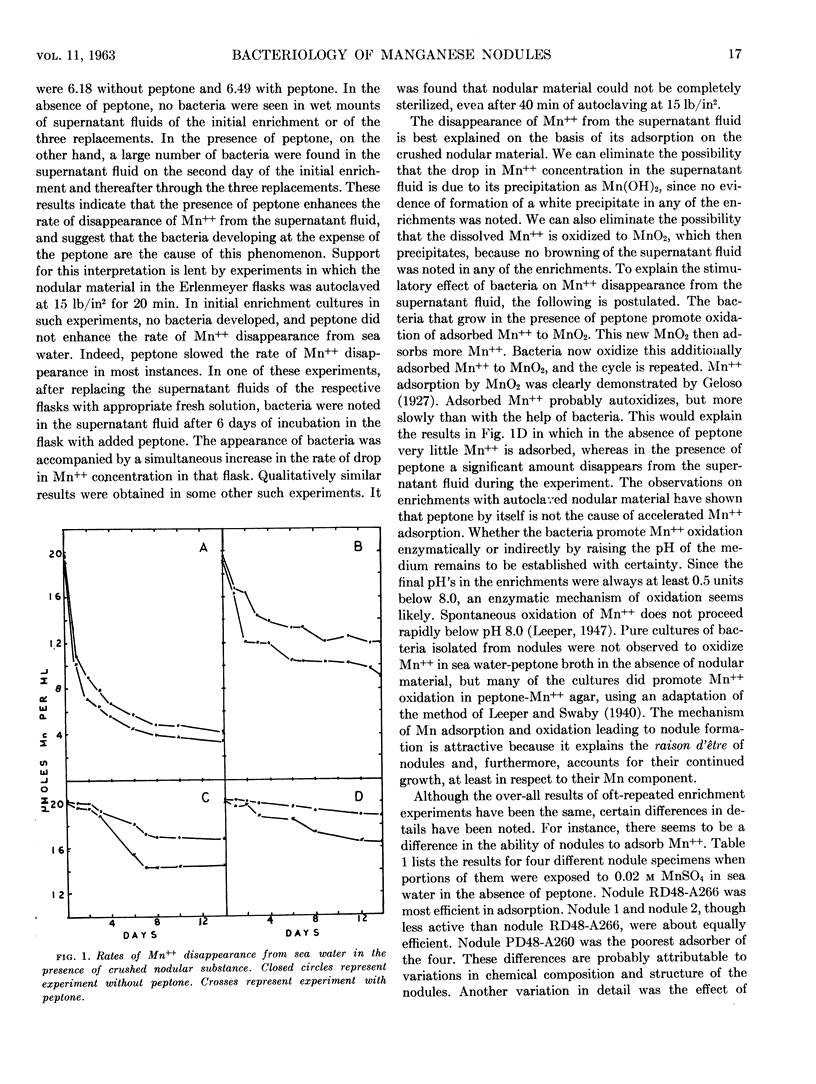
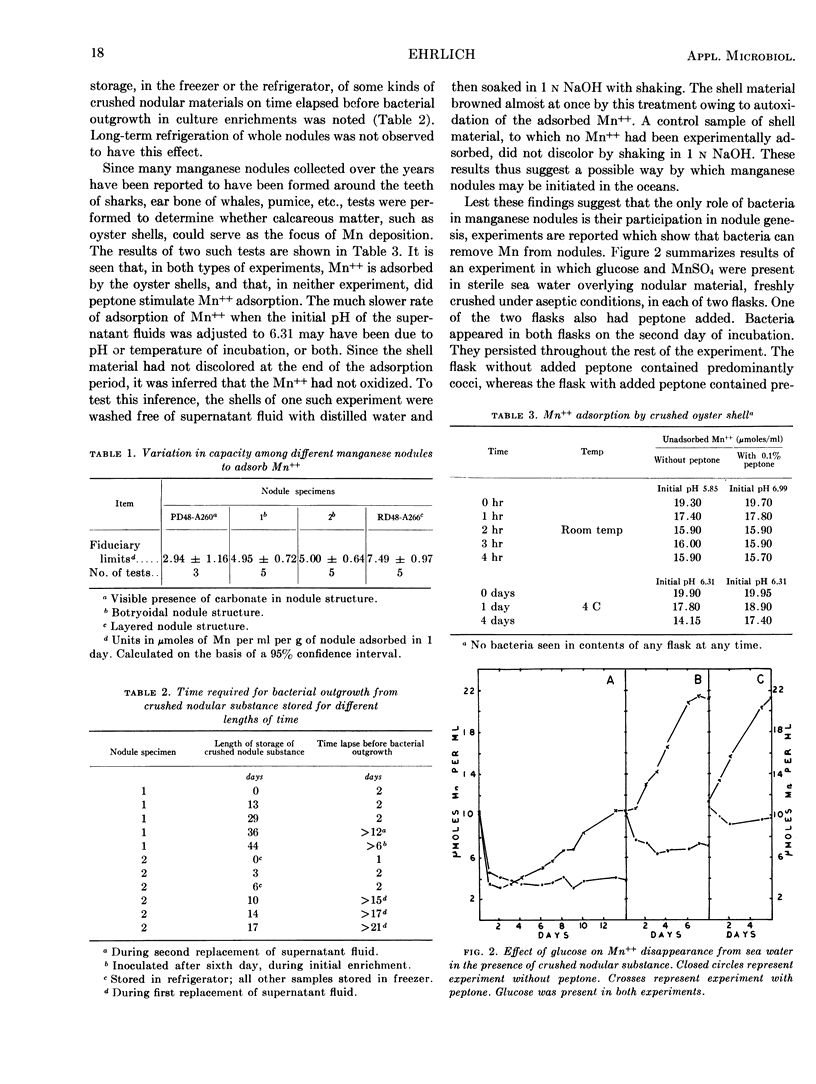
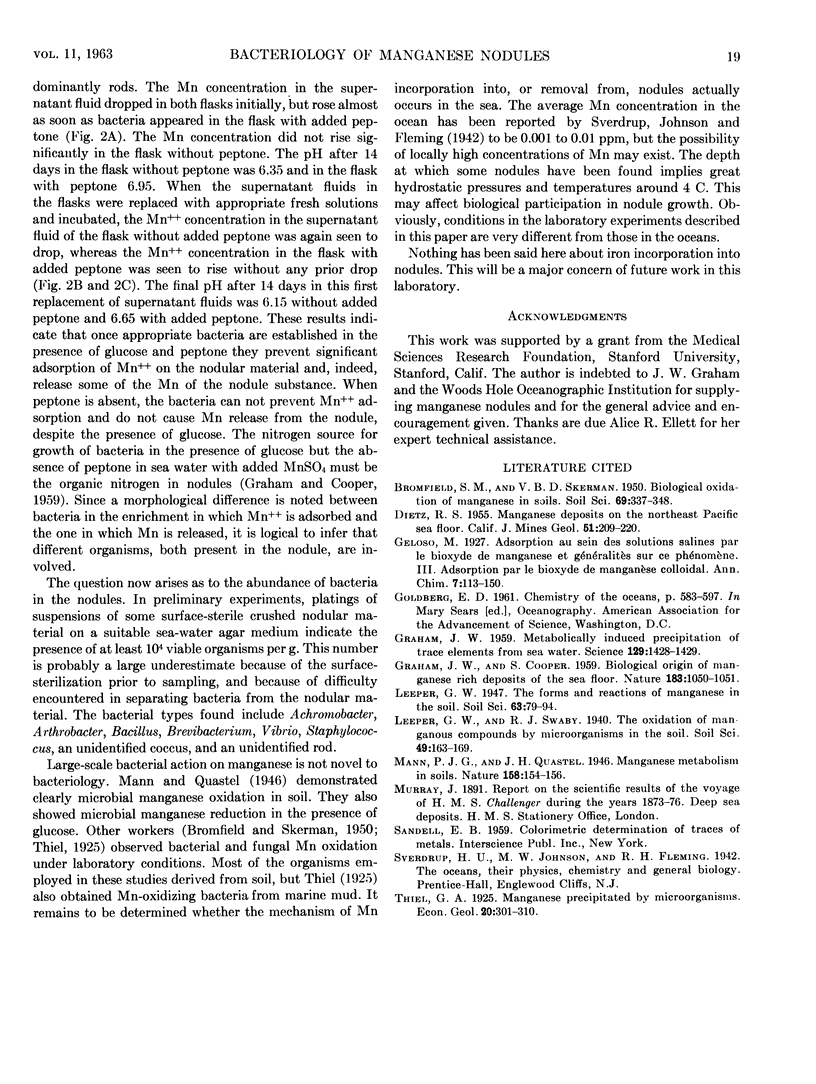
Selected References
These references are in PubMed. This may not be the complete list of references from this article.
- GRAHAM J. W. Metabolically induced precipitation of trace elements from sea water. Science. 1959 May 22;129(3360):1428–1429. doi: 10.1126/science.129.3360.1428. [DOI] [PubMed] [Google Scholar]


